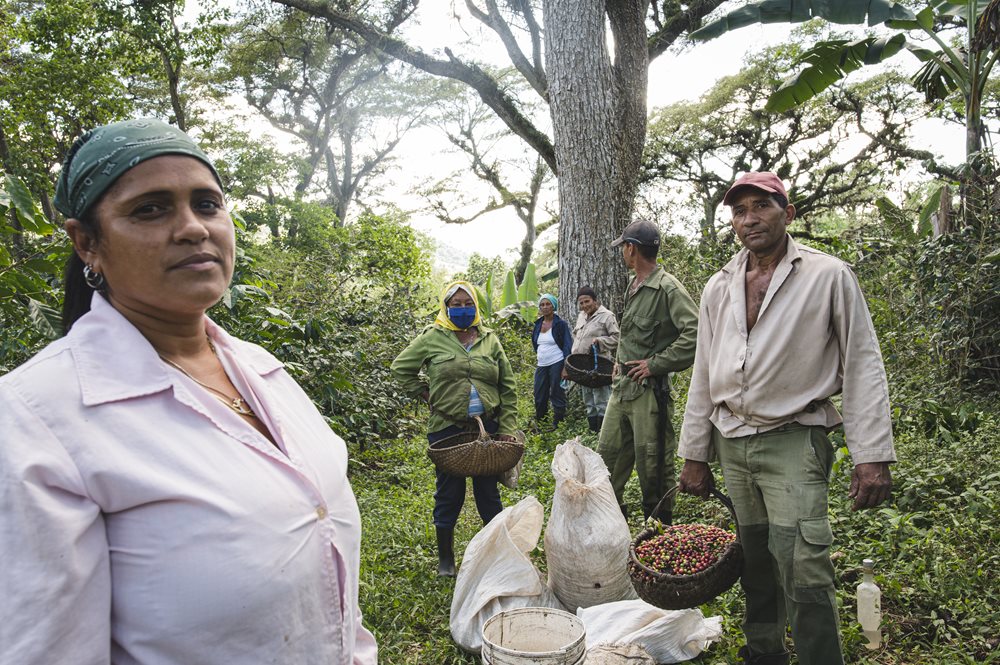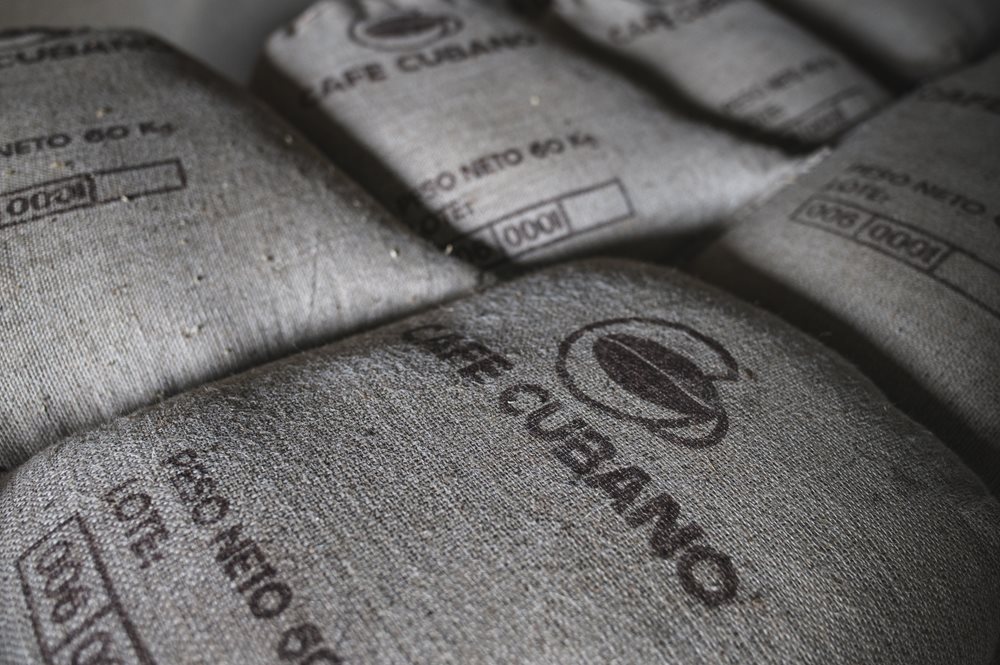World Coffee Portal Editor Tobias Pearce caught up with Michele Curto, President of the AICEC and Bio Cuba Café, to find out how the 20-year project to rebuild Cuba’s coffee industry is progressing with a community and sustainability-first approach

Photo credits: Lavazza Foundation
In December 2023, I travelled to Cuba to see how Bio Cuba Café (a joint venture between the Giuseppe and Pericle Lavazza Foundation, the Cuban Agriculture Ministry (GAF) and HEI (Hecho en Italia s.r.l.) founded by AICEC, a non-governmental Agency for Cultural and Social Interchange with Cuba) is rebuilding the country’s coffee industry, which has suffered decades of decline.
It’s a colossal, complex task, but one that presents a unique opportunity to embed environmental, economic and social sustainability into all Cuban coffee. To find out how the project is progressing, I caught up with Michele Curto, President of the AICEC and Bio Cuba Café, at SIGEP World in January 2025.
This year’s event saw Lavazza and Bio Cuba Café take centre-stage in SIGEP World’s Sustainability District, where they were joined by key members of the Cuban government, including Diosnel San Loy Martinez, Deputy Minister of Agriculture and Yusmeibyt Plana Miranda, Vice-President of Cuba’s Agroforestry Group.
“We have transformed from a social project into a thriving sustainable business,” says Curto, with his typical enthusiasm for the initiative, which grew from 270 partner farmers at the end of 2023 to 320 in 2024.
Demonstrating Bio Cuba Café’s expanded reach, Lavazza’s La Reserva de iTierra! Cuba coffee is now available in 25 markets globally, including the UK, France, Greece, Italy and the Netherlands, meaning that for the first time in nearly four decades, Cuban coffee is widely available in major European countries.
“We are guarenteeing an income from coffee”
As Curto explains, getting to this stage has required rigorous engagement with communities in Cuba’s Santiago de Cuba and Guantanamo regions to develop a new approach to coffee production. “The most important achievement of the last year has been initiating the reform of Cuba’s coffee supply chain. Our first step was drafting a new contract with producers and the municipal enterprises,” he says.
This innovative approach unites Cuba’s coffee producers, wet processing stations and Bio Cuba Café under a more efficient three-way contract model, enhancing supply chain transparency and maximising value for all stakeholders. “We are simplifying the chain and we are qualifying the chain,” says Curto, outlining how digital traceability is translating into value for Cuba’s coffee farmers.
.jpg.aspx?lang=en-GB)
Coffee producers, municipal wet processing stations and Bio Cuba Café now work together in a three-way contract that increases value, efficiency and transparency
Each coffee lot is tagged with more than 90 agronomic, economic and social KPIs, which track everything from organic cultivation, harvesting methods, mechanical or livestock transportation, water use and even how many family members rely on the farm’s income.
In what was previously a purely voluntary system, Bio Cuba Café is now paying a 10% incentive on coffee cherries to farmers who adhere to its traceability platform. “This has increased the efficiency, compliance and commitment to sustainability,” he says.
Cuban farmers typically sell coffee cherries in 12.88kg lots known as ‘latas,’ and Bio Cuba Café has been able to increase the value of this quantity by 50% under its new contract structure. While most Cuban coffee is not currently graded as specialty in terms of quality, when it comes to traceability, organic, deforestation-free Cuban coffee is already world-class, meaning it can fetch a premium price in international markets.
“It is essential that coffee growers see the benefits of being part of the coffee community can bring”
Beating the black market
A key aim of the Bio Cuba Café project is to demonstrate that coffee is a catalyst for economic prosperity. However, Cuba’s coffee industry has long faced a battle with the black market, which causes crops to haemorrhage value.
The long-standing US embargo means Cubans face shortages of everyday staples, such as bread, clothing and cooking oil. For this reason, many Cuban coffee farmers use the black market to top up household income or even pay workers with coffee. However, this additional income is quickly absorbed by the high cost of purchasing other black market goods.
To break this cycle, the farmers now receive higher compensation for their coffee compared to the black market, with a remuneration scheme based on cash and topped up with an additional point system. Farmers can leverage these points to subsidise household staples, such as cooking essentials or school equipment, which Bio Cuba Café can import and provide far more cheaply compared to the local market.

Cuban coffee is now available in 25 markets globally thanks to the Bio Cuba Café joint venture
“We also buy solar ventilators and solar panels. Progressively, we are increasing the quality of life on the ground,” says Curto.
For Curto, it is essential that coffee growers see the benefits of being part of the coffee community can bring. “To give coffee a future in Cuba, it is important that the actors trust the platform,” he says. To this end, Bio Cuba Café also ensures that contracts are signed by both the men and the women of households to ensure that families fully benefit from the programme.
Bio Cuba Café has also enlisted legal advisors to make sure farmers are properly equipped to conduct contracts from a position of strength. Curto is keen to emphasise that all these initiatives were implemented in collaboration with Cuba’s Ministry of Agriculture. “It was a common vision to provide the mountains with social services. We’re not replacing the black market with a private company, we’re replacing the black market with a state-driven approach.”
Another imperative is to stem the flow of migration from mountainous rural areas to the cities. “We are guaranteeing an income from coffee because if a coffee farmer’s children move to Havana, there is no future for Cuban coffee,” Curto explains.
Ultimately, Bio Cuba Café is also seeking to promote domestic consumption with products sold in local currency. To achieve this, Cuba’s first modern coffee roaster geared towards quality is currently being installed at the Rolando Ayub Contramaestre coffee processing plant in Santiago de Cuba.
“The roaster is another important part of our strategy as a way to bring Cuban coffee to market and give Cubans a greater sense of ownership of their coffee.”
To further support Cuba’s domestic coffee consumption, Bio Cuba Café is also working to build the first Lavazza Training Center in Havana, which will teach key skills, such as equipment maintenance, cupping and preparation, to the next generation of Cuban coffee professionals.
“It’s about creating a social eco-system where the value of coffee is distributed to the people who cultivate it,” says Curto.
“This project is not and does not want to be a marketing exercise, our goal is to work with Lavazza and GAF to create serious, consistent, real and authentic initiatives to bring Cuban coffee to the world market.”
With year one of the Bio Cuba Café project complete and the second now well underway, the project’s 20-year vision to build a world-class coffee industry in Cuba is already yielding promising returns for the country’s rebirth as a major coffee producer.
Its success has depended on forging deep links with Cuban society, both at a government level and among coffee-growing communities – and could serve as a blueprint for other producer countries.
About the Lavazza Foundation
In 2004, the Giuseppe and Pericle Lavazza Foundation ETS was established to promote and implement economic, social, and environmental sustainability projects for coffee-producing communities worldwide. The Foundation empowers local communities by promoting the role of female workers and engaging younger generations. It supports good agricultural practices to enhance crop yields and coffee quality while encouraging the adoption of technological tools to mitigate the effects of climate change.
fondazionelavazza.com